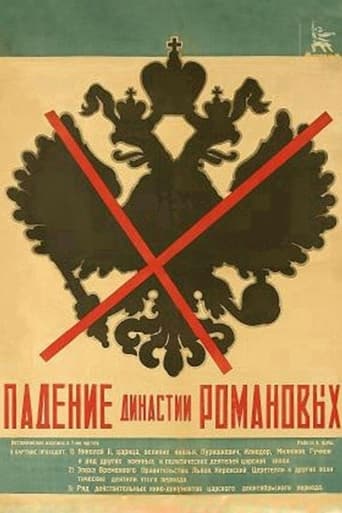zachary-03373
After an initial viewing, Esfir Shub's Fall of the Romanov Dynasty appeared fairly unremarkable in its presentation. Concerning structure, the film chronologically moves towards the fate that is predestined in its title with title cards giving context to the scenes. Without a score to accompany it (the version I watched), it is a fairly dry viewing experience after watching Vertov's 'documentary' Man With a Movie Camera. However, the comparison here isn't very appropriate considering that the aims of the filmmakers were not closely aligned at all. Shub's film compiles archival footage with the intention of forming a coherent historical record. Her objectivity is certainly debatable. The aloofness of the nobility is inter-cut with the toil of laborers in the fields. The full regalia of Russia's leading military men and the white, virginal dresses of noble women are put against the humble shawls of impoverished city dwellers. The individual leaders of the monarchists are featured prominently while crowds of dissidents replace the screen time of the Bolshevik leaders, an attempt by Shub to play on the revolution as populist movement. While the misleading nature of the film is a little off putting (for example capitalists are explicitly blamed for World War I), Shub's patience in the editing room and her ability to showcase tension between estranged classes of people visually redeem the film as a whole.
boblipton
Let's get this straight: this is pretty much straight line Marxist history as of 1928, to which I say "So what?" It takes decades to sort out the passions of the events and get a reasonable take on them and even then passions will continue to inflame matters. Consider the discussions of the American Civil War as of 1960. I don't believe that the First World War was started to maximize profits, but as a sort of series of events that would be a comedy of errors if they weren't so horrid.What we do have here, and what should be applauded, is some great historical clips of Russia from before the First World War -- and most of the pre-War film studios were so devastated that many students of cinema aren't even aware there was an advanced Russian film industry before the Great War -- which are beautifully edited. Esfir Shub was one of the people surrounding Dziga Vertov, who was a practicing and practical director while the Academicians were writing texts to demonstrate to the lumpen-proletariat why they should appreciate their editing. As a result, this becomes a well-illustrated history text which tells its story in a comprehensible and engaging fashion. It is the model for how such documentaries would be done for decades, and still are.
JoeytheBrit
This insight into the events leading up to the 1917 revolution wasn't anywhere near as interesting as I thought it was going to be, largely perhaps because it was presumably made under the watchful eye of the Communist dictatorship meaning that what ended up on screen was always going to be one sided. Although it begins by showing the various elements of the Russian political, religious and societal landscape, the film does tend to focus more on the little man and the peasants and the impact the Great War had on the possibility for a revolution to take place. The old order are largely portrayed as malevolently grinning buffoons while the likes of Lenin are barely glimpsed at all. And while we see many shots of large crowds gathered in the streets of St. Petersburg, we see no riots or bloodshed and, essentially, fail to really get a flavour of the times and of how much excitement must have been buzzing around the city streets in those heady days. Those poor mugs must really have believed the days of utopian bliss had arrived
FreeMM
Fascinating collection of footage from the years 1913-17 focusing on the Russian Revolution. With an introduction by a Russian historian and cultural expert, it exposed a number of myths about the revolution and in particular, the Bolsheviks.With this gentleman providing a commentary over the footage that's happening and explaining the propaganda behind not only this film, but the three films that I'd seen by Eisentein, presenting them in a completely different light. Filmwise it wasn't anything special, however the informed commentary was riveting and helps you to understand a bit more about what actually happened, even if it only touches the surface.Watched in conjunction with Eisenstein's October 1917, Strike and Battleship Potemkin, these are essential viewing.



